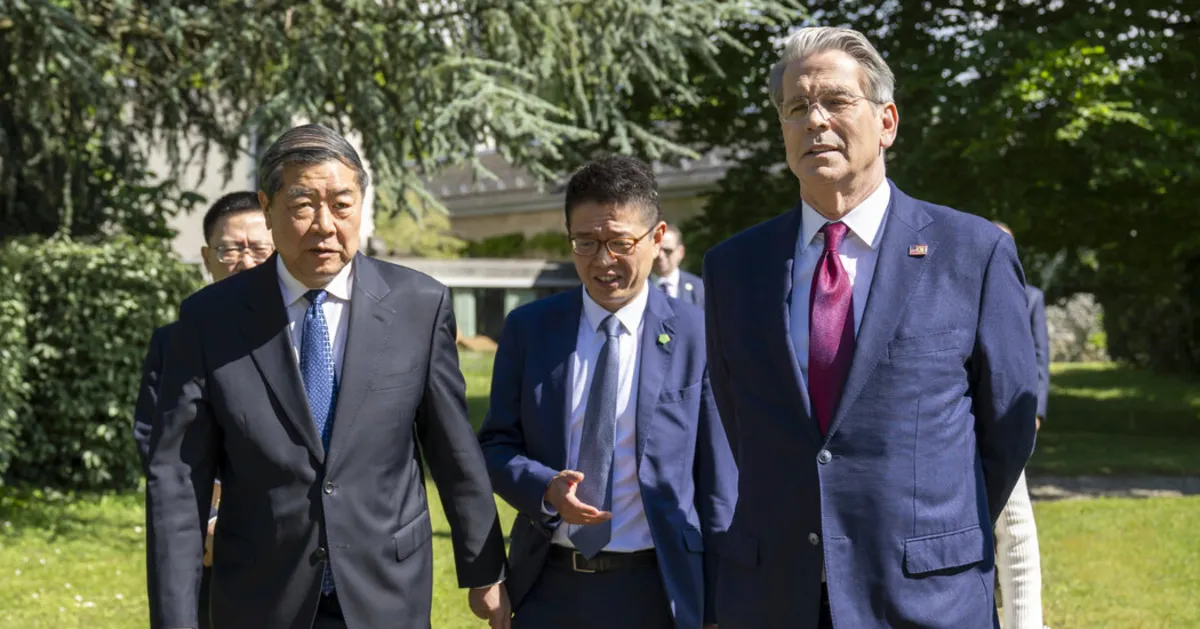
Top officials from the Trump administration are set to meet with their Chinese counterparts in London on Monday for a pivotal second round of economic talks. The primary objective of these discussions is to solidify a trade truce between the world’s two largest economies, the United States and China. Leading the American delegation will be Treasury Secretary Scott Bessent, Commerce Secretary Howard Lutnick, and Jamieson Greer, who serves as the United States’ trade representative.
On the Chinese side, the delegation will be represented by He Lifeng, the vice premier responsible for economic policy, who oversaw the previous round of discussions held in Switzerland. The meetings in London are expected to continue through Tuesday, according to sources familiar with the agenda.
The backdrop of these talks comes at a critical time for the global economy, which has been experiencing slowdowns due to uncertainty and ongoing supply chain disruptions. Earlier in April, the United States made a strategic decision to pause some tariffs that President Trump had imposed on various countries, allowing time for these essential trade negotiations to take place.
However, the situation surrounding these tariffs has become increasingly complicated. In late May, a U.S. trade court ruled that many of the tariffs were illegal, yet they remain in effect as the appeal process continues. This legal uncertainty could undermine the Trump administration's negotiating position as it seeks to establish a broader agreement that would facilitate greater access for American businesses into the Chinese market, encourage Beijing to increase its purchases of American goods, and promote more Chinese investment in U.S. manufacturing.
Moreover, the Trump administration is considering making certain tariffs permanent, with the aim of deterring a surge of Chinese exports in manufactured goods. This long-term strategy is critical as the administration navigates complex trade dynamics.
In China, the economic landscape is also challenging. A prolonged collapse in the housing market over the past four years has significantly eroded the savings of the country’s middle class, leading to widespread reluctance among hundreds of millions of households to spend. In response to weak consumer spending, the Chinese government has initiated a substantial campaign to build factories and enhance exports, aiming to stabilize the economy.
As the negotiations unfold in London, the world will be watching closely to see if the Trump administration and China can come to a mutually beneficial agreement that addresses these pressing economic challenges.